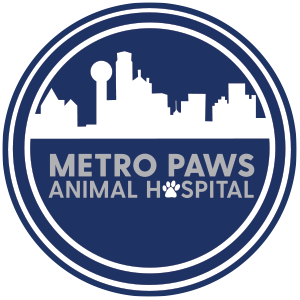by Dr. Rebecca Donaldson
Rat poison (rodenticide) is highly dangerous to our dogs and cats when ingested. There are several kinds of rodenticides and they cause toxicity to our pets in different ways. This article will discuss the types of rodenticides, their effects on the body, possible treatments, and ways to prevent ingestion. If you know your pet has ingested any amount of rodenticide, please call your veterinarian immediately!
Rodenticides
- Anticoagulant Rodenticides
- These types of rodenticides act by preventing the production of Vitamin K dependent blood clotting factors. This can lead to life-threatening internal bleeding when ingested and if left untreated, can be fatal.
- Clinical signs include lethargy, pale gums, difficulty breathing, vomiting (often with blood), nose bleeds, collapse, and death
- Treatment includes decontamination, oral Vitamin K therapy (usually for one month), blood or plasma transfusions, and supportive care.
- Look for labels that include these words: bromadiolone, brodifacoum, warfarin
- Bromethalin
- While it sounds similar to the anticoagulant rodenticide products (such as bromadiolone), bromethalin does not inhibit blood clotting in the body and is therefore not an anticoagulant rodenticide. Instead it acts by inducing brain swelling, called cerebral edema.
- Clinical signs include incoordination (ataxia), vomiting, tremors, seizures, coma, and death. Some products contain blue-green dyes which may show up in feces.
- There is no antidote for bromethalin toxicity. Treatment is aimed at inducing vomiting (if ingestion was recent), administering activated charcoal to prevent absorption into the body, IV fluids, and anti-seizure medications.
- Cholecalciferol
(Vitamin D3)
- This type of rodenticide is highly toxic, even in small doses. It increases the amount of calcium in the body and can quickly lead to kidney failure.
- Clinical signs include inappetance, lethargy, changes in drinking and urination, kidney failure, and death.
- There is no antidote for cholecalciferol toxicity, and treatment usually requires multiple days in the hospital with aggressive IV fluid therapy and medications to decrease calcium.
The best way to prevent rodenticide toxicity in your pets is to avoid keeping it on your property. We recommend consulting with a pest control specialist for ways to control rats and mice while still keeping your pets safe. If your pet ingests these poisons, bring them to your veterinarian right away. If possible, bring the packaging with you so that your vet can determine which type of poison was ingested, and how much.
Many times a dog or cat ingests the poison without their owner ever knowing it happened. That’s why it is important to bring your pet to the vet right away at the first sign of illness.
